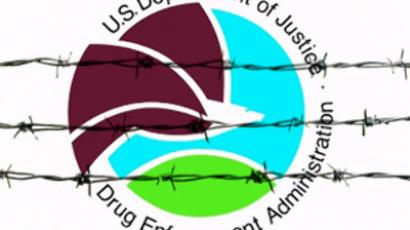Young offenders – victims of US detention system
In the US city of New Orleans, the current juvenile detention system is coming under fire. A worrying number of young offenders are now becoming victims of violence and abuse while incarcerated.
Jeremiah Douglas is back on the streets of New Orleans. Like many of the kids here, at some point Douglas was locked up in America's juvenile justice system.
“Growing up I was raised around the ’hood mentality,” he told RT. “You know certain things I had to do, certain things I wasn’t supposed to do and I did it ’cause I thought it was cool.”
Douglas' story is not unique. Most juveniles who are incarcerated in the United States are poor and black.
Louisiana has the highest rate of kids getting locked up in the country.
Their advocates say that these children just need something to do to stay out of trouble as, once imprisoned, many of them become victims of the system.
”It was a regular occurrence for us to visit children who had been raped who had broken ear drums, shattered jaws,” said Dana Kaplan of the Juvenile Justice Project of Louisiana. “A huge litany of just unbelievably horrible things happen to them while they were incarcerated.”
Raven Spears, who also had been locked up, said that she faced abuse when behind bars. ”Fighting, fighting, fighting and guards they were cursing us – stuff like that,” she said.
Advocates said that, when imprisoned, these kids are a statistic that can be easily forgotten by general public and politicians.
“There’s very little public scrutiny, there is very little transparency or accountability,” said Kaplan. “The general public or elected officials overall, not to say everyone, but elected officials overall might not consider these youth to be their primary constituency.”
She also added that the situation these kids find themselves in is rooted in the country’s past.
”Youth of color are overrepresented in the juvenile justice system,” Kaplan said. “In Louisiana, in the deep South, there certainly is a particularly virulent history of racism. So you can not deny that there is a history of racism that has kind of led us to where we are today.”
However, in spite of the obstacles, these teenagers are striving for success.
”I’m trying to be a millionaire, successful,” said Jeremiah. “When I die I want people to say Jeremiah did this. I want to be somebody like Martin Luther King, Malcolm X, Jesse Jackson – what they all did back in the day.”
Persevering in a place where the odds are stacked against them.













